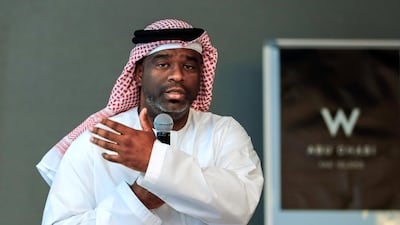The National Central Cooling Company, also known as Tabreed, is looking to expand its presence in the Gulf markets, particularly Saudi Arabia, through acquisitions or new projects to boost growth, its chief executive said.
Tabreed, listed on the Dubai Financial Market currently operates in the UAE, Saudi Arabia, Bahrain, Qatar and Oman, providing district cooling to landmark developments including Dubai Metro and Ferrari World in UAE; Bahrain’s financial centre and the Jabal Omar Development in Saudi Arabia.
“We truly believe about Saudi Arabia market and the vision 2030 and all the mega projects that are currently under development whether it is Neom, Red Sea [Project] or Qiddiya. We see a big potential there and we need to be part of that development,” Bader Al Lamki, told reporters in Abu Dhabi. The company is looking at greenfield projects as well as acquisitions in all the geographies of the region, he added.
Saudi Arabia is developing a number of new mega-projects such as the $500 billion (Dh1.84 trillion) futuristic economic free zone, Neom; the Red Sea Project, a mega-tourism attraction, and Qiddiya, a new entertainment destination in Riyadh.
Tabreed recently increased its stake in Saudi Tabreed, its district cooling investment vehicle in the kingdom by acquiring an additional 8 per cent stake, increasing its ownership to 28 per cent. The deal is valued at 129 million Saudi riyals (Dh126.3m).
Saudi Tabreed is jointly owned by Vision Invest, IDB Infrastructure Fund II of the Public Investment Fund and others.
“We are successful in Saudi Arabia, a big market that is growing and has a big potential, so we increased our stake …. which is a significant step forward,” Mr Al Lamki said.
Saudi Tabreed currently provides 187,000 refrigeration tonnes (RT) of cooling to projects including Jabal Omar Development, Saudi Aramco facilities in Dhahran and King Abdullah Financial District.
The company is also scouting for new opportunities in Kuwait and Egypt in an effort to boost revenue. In Oman, it recently added Mall of Muscat to its portfolio, taking the total number of plants it operates in the Sultanate to five.
Tabreed has expanded its footprint beyond the Gulf as well. Last year, the Abu Dhabi-based company entered into a 30-year concession for its first district cooling plant outside the GCC market in Amaravati, the new capital of the South Indian state of Andhra Pradesh.
However, the company has no immediate plans to raise money through sukuk or bonds to finance its new projects, Mr Al Lamki said.
“At the moment, we have sufficient liquidity to finance our current growth ambitions and if there is any need in future, we can revisit that but for now, we finalised our sukuk in late 2018, and we are in a good financial position.” The firm in 2008 raised $500m (Dh1.8 billion) through a seven-year tenor sukuk.
Tabreed reported a 20.8 per cent increase in its third-quarter net income, as revenues climbed on the back of new connections. Net profit attributable to shareholders for the three months to the end of September rose to Dh129.7m. Revenue for the reporting period climbed 3.8 per cent year-on-year to Dh456m.
In 2020, the company is planning to improve its net profit on the back of new cooling projects, he added.
“We are optimistic and 2019 has been a good year and we will close on a strong note and the ambition is to continue the trend.”
Tabreed operates 78 plants in the GCC and delivers over 1.16 million RT of cooling to major residential and commercial projects in both the private and government sectors. Mubadala Investment Company controls a 42 per cent stake in the company while another 40 per cent is owned by France's Engie.


